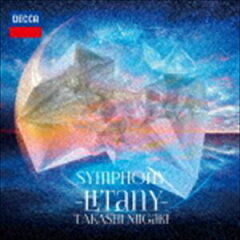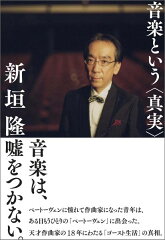
<prologue>
I started a blog called “The Baby Boomer Generation’s Miscellaneous Blog”(Dankai-sedai no garakutatyou:団塊世代の我楽多(がらくた)帳) in July 2018, about a year before I fully retired. More than six years have passed since then, and the number of articles has increased considerably.
So, in order to make them accessible to people who don’t understand Japanese, I decided to translate my past articles into English and publish them.
It may sound a bit exaggerated, but I would like to make this my life’s work.
It should be noted that haiku and waka (Japanese short fixed form poems) are quite difficult to translate into English, so some parts are written in Japanese.
If you are interested in haiku or waka and would like to know more, please read introductory or specialized books on haiku or waka written in English.
I also write many articles about the Japanese language. I would be happy if these inspire more people to want to learn Japanese.
my blog’s URL:団塊世代の我楽多(がらくた)帳 | 団塊世代が雑学や面白い話を発信しています
my X’s URL:団塊世代の我楽多帳(@historia49)さん / X
1.Ghostwriters in the music industry
In 2014, Mamoru Samuragochi (1963- ), who marketed himself as a “deaf composer,” was accused by his “ghostwriter,” composer/pianist Takashi Niigaki (1970- ), a composer and pianist, accused him of “not actually composing his own music and not being as hearing impaired as he claimed,” and his records and books were suspended.
This case also attracted a great deal of attention because a “ghostwriter,” who is usually kept out of the public eye, was made public.
Niigaki describes the “ghostwriter” as follows.
I was not after money or fame. Samuragochi’s commission was not contemporary music, but tonal music, which is not the main stream of my work. His offer was a kind of a breather. Anyone who studies contemporary music can do that kind of music. I also felt that there was no way it would sell anyway. I was also thinking that my compositions, whether film music or video game music, would be heard by many people. I was genuinely happy to hear the feedback.
As for the “reality of substitution,” he said
He was practically a producer. I helped him realize his ideas. He would make the request, I would make the score and give it to him, and that was the only exchange we had. I think there were times when he and I shared very much the same passion.
The reasons for Niigaki’s decision to press charges are unclear, but I suspect it was “money matters” and “a righteous rebellion against Mr. Samuragochi’s falsification of his disability and composition techniques to gain honor.
Mamoru Samurakouchi was heavily criticized by the public and seems to have been erased from the music world, but he deserved it for having been honored with a lie.
On the other hand, Mr. Takashi Aragaki became famous as a result of this accusation case and has been active like a celebrity, appearing on TV. It is like the saying, “All is well that ends well.
Composer Ken Ito, in his commentary on the case, states
In the Japanese music industry, from “occasion music” (music composed for some event) such as movies and TV dramas to operas, work is taken in the name of the top management, the staff divides up the composition work due to lack of time, and the staff is paid a buy-out guarantee and that is it, The staff members are paid a buyout fee, and the credits and copyrights are registered in the name of the top management.
In addition, since many famous musicians are involved, I cannot mention their real names, but we can see “the situation where the anchor remains the anchor all the time, i.e., the anchor stays behind the scenes and gets older at 30 or 40 years old, and the older people lose their jobs as the younger generation gets more talent, which is a situation that eats away at the assistants.
2.Ghostwriters in the publishing industry, including the fiction world.
This is a story I heard from a “media person” and I believe it is highly credible. The story concerns the “ghostwriter” of Toyoko Yamazaki (1924-2013).
Toyoko Yamazaki is one of my favorite writers. She is a former reporter for the Mainichi Shimbun, and like a newspaperman, she has conducted in-depth interviews and developed a grand plan based on those interviews into a fascinating novel.
She had a longtime “competent secretary” who was able to provide full support for her interviews, organizing materials, typing, etc. This secretary was fully qualified to be her “ghostwriter” because she knew how to develop the plot and the writing style as a result of years of support.
There are rumors that this secretary was a “ghostwriter” for some of Toyoko Yamazaki’s vast works, or parts of one of her works.
There were also “dissatisfaction in treatment” and “financial troubles” between Toyoko Yamazaki and her secretary, which were heard by the media.
In the publishing industry, the use of ghostwriters is commonplace for business and practical books. In recent years, the use of ghostwriters for novels has also become commonplace.
There are various types of cases, ranging from “dictation,” in which the writer writes verbatim what he or she has said, to “editing and rewriting,” in which the writer makes additions and corrections to the original text to make it easier to read, to “substitute writing,” in which the writer almost writes for the author.
In some cases, the name of the person responsible for the actual work of writing the book appears in an acknowledgment or some other form, but in many cases it does not appear at all. In some cases, the name may appear under a vague title such as “composition,” “cooperation,” or “editorial assistance,” and may be hidden behind the door of the book, at the end of the table of contents, or in front of the endnotes.
While it is considered a major moral taboo in the publishing industry for ghostwriters to come forward on their own, if a ghostwriter is successful with his or her original work, his or her name may be outed and the ghost-era work reprinted.
The attitude of the “author” varies from person to person, with some publicly announcing that they had a ghostwriter help them, while others remain silent unless pursued, and many even act as if they wrote the book themselves.
As an aside, “Malice” by Keigo Higashino (1958- ) is a mystery novel about the murder of a writer by a ghostwriter. It has a “big twist” in it, but I won’t mention it here because it would be a spoiler. It is quite an interesting novel, so please read it if you are interested.
3.Was my job also like a ghostwriter?
I worked as a temp until June 2019. There, my role was to help the person in charge with his/her work. Specifically, I read the person in charge’s records of business meetings with customers and past documents, and I prepared applications by referring to those records and finding and printing documents.
Of course, there were times when the person in charge would revise the documents as he or she read them over, but I was the one who finished the documents as finished drafts. In that sense, I was a ghostwriter.

新垣隆(cond、p) / 新垣隆:交響曲≪連祷≫ -Litany- ピアノ協奏曲≪新生≫/流るる翠碧(SHM-CD) [CD]
